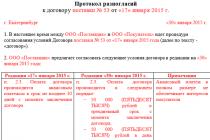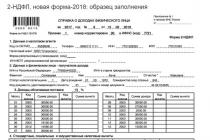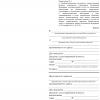In Russia, due diligence as a concept has appeared relatively recently, which is largely due to the intensification of investment processes at the global level, increased integration into the world economic space.
Consider the generalized information about due diligence, presented on the websites of leading foreign and Russian audit and consulting companies.
EY: Professional due diligence allows you to analyze internal documents and other company reports to determine financial trends. Due diligence examines in depth the quality and sustainability of earnings by examining key risks and previous financial indicators to determine whether it is reasonable to expect continued operations and to understand how changing circumstances and trends may affect the company's future. PwC: Due diligence can be done to identify deal failures to get better analysis financial condition, to establish a framework for negotiating during the transaction, to assess synergies, expectations and risks. KPMG: The purpose of due diligence is to assess the key issues facing the company being acquired and to confirm the investor's understanding of the business being carried out by the company. Deloitte: Paying attention to up-to-date information about the value and potential risks of the target company can increase the chances of a successful transaction. Thus, due diligence is very important in assessing risks and issues of compliance with the law, as well as maintaining tax and financial planning, determining future cash flows, identifying hidden costs. Finexpertiza: The main goal of Due Diligence is to form a complete picture of the real financial condition of the enterprise and all the risks that can significantly worsen the financial condition of the enterprise. Rosexpertiza: Due diligence - pre-investment survey of companies.
Elements of similarity between due diligence and audit
The methodology of audit and due diligence is based on the unity of analysis and synthesis of financial and non-financial information, the study of indicators in interrelation, tracking their further development. The methods used by specialists during the procedures are identical. At the same time, as part of the audit, methods are used to obtain audit evidence confirming the auditors' conclusions regarding the reliability of the credentials on the basis of which the financial statements of the audited organization are formed. As part of due diligence, attention is focused on analytical procedures and forecasts in order to identify risky areas of the company under study.
When carrying out compared procedures, specialists consider both financial and non-financial information as an information basis. The measuring instruments of the analyzed information are the same.
When analyzing data within the framework audit and when conducting due diligence, the financial year is taken as the reporting period.
A key role in carrying out the compared procedures is assigned to professionals - certified auditors. As part of due diligence and audit, experts from different fields can also be involved, which is determined by the specifics of the proposed investment research.
The time required to complete the audit and due diligence procedures can vary from two weeks to one year, depending on the size of the organization being audited, as well as the objectives of the audit.
Differences between due diligence and audit
The essence of due diligence is to conduct investment research, according to the results of which the investor receives a comprehensive report from experts, reflecting conclusions about current and potential risks that can have a significant impact on the planned investment transaction.
An audit is a form of independent financial control, it performs an important public function, assuring all interested users of the reliability of the state and results of the companies, reflected in financial statements.
When performing due diligence, strict adherence to the principle of independence is not required, in contrast to the audit, for which independence is recognized as a key condition.
The circle of users of the results of the audit is much wider: in contrast to the comprehensive due diligence report, which is intended for specific investor, the auditor's report may be presented to all interested users(both internal and external).
Auditing has a long history. As for the due diligence procedure, it is relatively the new kind professional activity. In world practice, the mention of this type of analytical activity dates back to 1933 in the Law on valuable papers ah USA.
Let's present the results comparative analysis due diligence and audit procedures in the form of a table
| Comparison criterion | due diligence | Audit |
|---|---|---|
| Essence | Examination of the purity of the proposed transaction as part of the decision-making process on the effective and less risky investment of capital in order to preserve and increase it in the future | A type of management activity that boils down to an independent financial control reference accounting and evaluation of accounting (financial) statements |
| An object | Financial and non-financial information of organizations required for investment research | Accounting (financial) statements of organizations and reflection in it of the final production and economic activities of organizations |
| Subject | Experts of the working group (certified auditors, lawyers, appraisers, tax specialists, marketers, etc.) working in audit and consulting companies | Certified auditors, consultants, tax specialists working in audit and consulting companies, as well as individual auditors |
| Item | Identification of risk areas (based on financial and non-financial information) in the activities of organizations for the implementation of effective capital investment | Reliability of accounting (financial) statements of organizations |
| Target | Minimizing the risks of investing capital to preserve and increase it in the future | Expression of an opinion on the reliability of the accounting (financial) statements of the audited entity based on the results of an independent audit of such statements |
| Methodology | Comprehensive, system analysis | |
| Functions | System, information, complex-analytical, research, innovative, evaluation, preventive | Control and evaluation, consultative and advising |
| Principles | Honesty, objectivity, integrity, confidentiality, ethics, future orientation, professional competence | Independence, honesty, objectivity, professional competence, integrity, confidentiality, professional behavior |
| Historical aspect | The mention of the procedure begins in 1933. | Audit activity has a long history, the first mention of the audit appeared in ancient Egypt and ancient China as a tool for controlling state revenues and expenditures |
| Regulatory regulation | Agreement of Swiss banks on due diligence standards (The Swish Bank's due diligence Agreement), EU directives for due diligence, no national professional standards | ISA, FPSAD, FSAD, Law No. 307-FZ, Code of Professional Ethics for Auditors |
| Mandatory requirements | Be proactive when making investment decisions | Law No. 307-FZ |
| Kinds | Due diligence when buying shares, due diligence when buying an asset, due diligence when buying mergers and acquisitions | External audit, internal audit |
| Types | Accounting, information, marketing, tax, legal, financial, environmental | proactive, obligatory |
| Users | Potential investors | Owners, potential investors and other interested users |
| Degree of openness | Confidential, for a potential investor | Open to all users of financial statements |
| Materiality | Assessment of the potential risk for a capital transaction in money equivalent | The maximum allowable amount of an erroneous amount that can be reflected in the financial statements and considered as insignificant or not misleading users |
| General presentation of the stages of implementation | 1. Preparation: holding negotiations between the investor and experts, with representatives of the target company; preliminary express analysis, holding a round table and concluding an agreement of intent; defining the scope of work; conclusion of an agreement. 2. Planning: drawing up a plan for due diligence; definition of due diligence programs in areas; checklist preparation. 3. Completion: implementation of the planned due diligence procedures; identification, assessment and analysis of risks in the areas of due diligence; preparation of separate reports; preparation of a comprehensive due diligence report; holding a working meeting on the results of the examination |
1. Preparation: drafting and sending an audit letter; conclusion of an audit contract; conducting a preliminary analysis in order to understand the activities of the audited entity; risk assessment. 2. Planning: preliminary planning; preparation and compilation general plan audit; preparation and drawing up of the audit program. 3. End: collection of audit evidence; preparation of an auditor's report; holding a meeting on the results of the audit |
| Meters | Natural, conditionally natural, cost, labor | |
| Techniques and methods of conducting | Observation, inquiries, confirmations, recalculation, tracing, interrogations, analytical procedures and etc. | |
| Degree of accuracy | Approximate estimates, forecast data | Subject to materiality |
| Orientation in time | Focused on the future, offers a forecast | Oriented to the past, confirms the fait accompli |
| Result | Submission of a comprehensive due diligence report | Presentation of the auditor's report |
| Report Form | Not regulated, a comprehensive report to the investor based on the results of an examination of the purity of a capital transaction | Regulated by FSAD 1/2010 |
| A responsibility | normative document no. | FSAD 1/2010 |
| Currently, when conducting investment research, the responsibility of the parties is determined by the terms of the contract | ||
| Risks | There is no single classification, they are identified in the process of examination | Audit risk, inherent risk, error risk, system risk internal control |
| Check period | From two weeks to a year | From two weeks to a year |
| Reporting period | Financial year | Financial year |
| Utility | Obtaining a rationale for making a decision on a less risky investment of capital in order to preserve and increase it in the future | Confirmation of the reliability of financial statements for further adoption of various management decisions |
Thus, we can conclude that there are similarities between due diligence and audit (methodology and methods, information base and its measurers, participants of the working group and the period of the procedure, adopted reporting period), but there are much more differences, therefore, procedures cannot be identified.
Glinsky Oleg, Ernst&Young
Magazine "Company Management" #11, 2002
Have you decided to find an investor or completely sell your business? From this article, in general terms, you will learn how you will be checked, what is Due Diligence and what stages this process consists of.
Currently, the global financial market is dominated by a trend towards mergers and acquisitions. The process of capital consolidation takes place at all levels of the world economy. Business combination transactions are carried out both on a national and international, global scale. This process involves not only global giants such as British Petroleum or Vodafone, but also small national and regional companies.
The Russian capital market is no exception in this case. More than 10 years have passed since the moment when the right of private ownership of the means of production, in other words, of enterprises and companies, appeared in our country. Market economy in Russia is developing, and in parallel with this process, relations around private property are being improved. At the beginning of the reforms, the ownership of many enterprises was in the hands of labor collectives or "new Russians" who had made a fuss in time, and their management was carried out mainly by the same people who managed Soviet enterprises.
But time passes, the period of primitive accumulation of capital passes, and a civilized society is gradually being formed in our country. financial market. Companies and entire production complexes are being taken over by those who can, or at least think they can, provide the most effective use resources available to companies. Large financial and industrial groups and holding companies are being created, which acquire ownership of a large number of both industrial giants and small enterprises.
In order for an investor or a company that can become a buyer of a business to make sure that this operation will be beneficial for them, it is necessary to collect absolutely complete, reliable and objective data on the company's position in the market, its financial condition, production facilities, about contractors and partners.
WHAT IS DUE DILIGENCE?
To collect all this information, a special procedure is carried out, which in English sounds like Due Diligence. There are a large number of translations of this term into Russian, this phrase is translated as "due diligence", "careful observation", "due diligence" or "comprehensive examination of the reliability of the information provided". All these interpretations do not fully reflect the meaning of the laconic English expression. According to the author, a more adequate translation of Due Diligence into Russian is the following: "a comprehensive study of the company's activities, its financial condition and position in the market." This analysis is based on inside information, regulations, data provided by competitors and partners, and is carried out in order to:
- verify the accuracy of financial and other inside information;
- find confirmation of the assumptions laid down in the business plan;
- assess the possibility of implementing the company's short-term and long-term strategy;
- make sure that all documents are properly executed for their compliance with the law and internal rules of the company;
- ascertain the correctness and timeliness of filing tax and statistical reports;
- assess the competitive position of the company in the market in which it operates;
- make sure that the company's management is competent enough to implement the plans.
Due Diligence is a comprehensive analysis of the entire set of relationships within the company and its interaction with the environment in which it operates. Conventionally, this study can be divided into several parts, which differ greatly from each other both in terms of goals and methods of conducting. However, all these elements are essential for the integrity and comprehensiveness of the study of the activities and financial condition of the company.
STAGES OF DUE DILIGENCE
The first and most obvious stage of a comprehensive study is financial analysis (Financial Due Diligence), which focuses on the company's ability to generate income. Often it is carried out simultaneously with the audit of the enterprise, during which the correctness of accounting, the reliability of reporting and other documentation and their compliance are determined. regulations. In the process financial analysis the assets of the company, its income, financial ratios and a financial planning and control system.
Tax analysis of the enterprise (Tax Due Diligence) is carried out in order to assess the tax burden on the company, as well as to identify the possibility of optimizing the tax burden.
Analysis of legal aspects commercial activities(Legal Due Diligence) is aimed at checking the activities of the company in accordance with the regulations in the field of civil, labor law, as well as in the field of company law. In the process of Legal Due Diligence, the company's charter, its contracts with contractors and personnel are studied. In addition, new contracts for the future are being drafted and edited.
Recently, Environmental Due Diligence has also been carried out, in which the risks associated with environmental pollution and government environmental actions are identified and assessed.
All the stages of comprehensive research mentioned above are based primarily on the activities and performance of the company over the past periods of time. They do not consider market competition, do not provide forecasts, and do not involve strategic planning. These important elements are the subject of study of the most difficult part of Due Diligence - market position analysis (Market Due Diligence). During this stage of a comprehensive study, internal information about the possibilities for the development of production and technologies is compared with data on the needs of the market, with an assessment of the company's activities by market players. The main objectives of the market position analysis are:
- determining the position of the company in a competitive environment;
- analysis of the potential and prospects for the development of the market;
- assessment of opportunities for the development of the company in accordance with the dynamics of the market.
Analysis of the market position is divided into two areas: internal analysis of the company and analysis of the competitive environment.
Internal Company Analysis seeks answers to questions such as:
- What marketing strategy does the company use in each particular market?
- How do the prices of the researched company compare with the prices of competitors?
- The presence of customers and what is their attitude towards the company?
- How is R&D embodied in the current activities of the company?
- How is planning carried out?
- Can the goals set be achieved within the budget of the ongoing marketing strategy?
In the process this study all available inside information is studied, as well as a survey of company executives, employees of the financial and planning departments. Their views on the assets of the company and its resources, on the volume of sales and gross profit, on sales and marketing, on public relations and advertising, on the development strategy and the achievability of planned results. Upon completion of the internal analysis of the company, a report is drawn up, which includes all the collected documentation and records of interviews with the personnel of the company under study. This report contains absolutely complete information about the state of the company, its development plans and availability of resources, as well as the attitude of employees and management to the current state of the company and its prospects.
Competitive Analysis (External Company Analysis) examines the market in which the company operates, collects data on the number and potential of competitors, on the ideal size of the company, on the standards applied in this market. Analysis of the competitive environment provides answers to the following questions:
- What are the success factors of the company in the market?
- What is the average level of profitability and profit in the market?
- Should market trends be taken into account in long-term planning?
- Does the company under study have a competitive advantage over similar companies?
Analysis of the competitive environment involves not only studying the information available to a wide range of users, but also studying the comments of experts and analytical companies, as well as the opinions of the company's partners, consumers of its products or services, and necessarily competitors. These counterparties evaluate the company under study, the quality and price of its products, consider its image and advertising activities. We study the relationship of the company with suppliers and customers, compliance with the terms of contracts.
At this stage of a comprehensive study of the company, forecasts are made for the development of the market and competition, potential opportunities and the availability of resources necessary for further development are analyzed both from the company and its partners, and from competitors.
As a result of a comprehensive study, complete, objective and reliable information about the company's activities and prospects for its development is collected. At various stages, cross-checking of the data obtained in the previous stages is carried out.
As a result, a comprehensive analysis of the financial condition of the company, its relations with the state and counterparties makes it possible to draw up a report in which the investor or potential buyer of the company will find absolutely all the information of interest to him regarding the company in which he is going to invest. The objectivity and reliability of the information presented to his attention will allow him to make an independent and most adequate decision in this situation.
- Economy
Keywords:
1 -1
Literally, "Due Diligence" is translated as "due diligence." This is a procedure for drawing up an objective view of the investment object, during which we will conduct a comprehensive study of the company's activities, a comprehensive audit of its financial condition and market position, identify and assess the company's risks. The Due Diligence service is required if you plan to invest in new business, purchase objects commercial property, including real estate, take over another company, etc., as well as to obtain information by the interested party on the reliability and correctness of the information set out in accompanying documents to ongoing transactions, to assess solvency and real financial position purchase object, partners and other counterparties.
Conducting Due Diligence is an effective method of identifying and reducing risks in order to obtain high-quality protection of the interests of the parties to the transaction. It is based on a thorough analysis of internal documentation, tax and financial reporting, taking into account the requirements of the law and current law enforcement practice. This procedure will increase investment attractiveness the object of the transaction for investors, potential buyers, interested parties.
Our specialists have developed methods for conducting Due Diligence services, which are based on our rich practice of performing various kinds this procedure.
Tax Due Diligence
Tax Due Diligence (Due Diligence) is of key importance, since the tax burden, tax risks can have a significant impact on the assessment of the condition and attractiveness of the transaction object.
The tax burden can make absolutely any business unprofitable or unpromising in terms of investing in it. Or set certain restrictions and features that will make the business impossible or ineffective. That is why it is important to understand and plan in advance which taxes in this moment the company pays, how much it will have to pay in the future, is it possible to reduce tax burden. All these questions will be answered by the specialists of our company on the basis of the tax Due Diligence service.
We will also check the tax cleanliness of the company, the presence and (or) absence of overdue and doubtful debts in the settlements of buyers (customers), suppliers (contractors), the budget and other counterparties.
Financial Due Diligence
This is a verification of the reliability of information about the financial condition of the company, the results of its economic activities, an assessment of its commercial prospects.
In the course of the financial Due Diligence service (Due Diligence), we determine the key indicators financial efficiency companies, we assess future prospects, subject to certain norms and existing market conditions.
During the financial Due Diligence, we analyze the income and expenses of the company, their structure, the presence of debts and assets, any liabilities, loans. In addition, we check the quality of accounting, the relevance and reliability of the operations performed to reflect the facts economic life companies. We consider and analyze the dynamics of growth (or decline) of the main indicators, evaluate the quality of the work of accounting and financial services, accounting and reporting systems. From quality control and reliable reflection primary documents the quality and correctness of the formation of reporting indicators directly depends.
Legal Due Diligence
To avoid possible legal risks related to the upcoming transaction, our consultants will conduct a legal Due Diligence (Due Diligence). As a result of this study, the existing encumbrances and possible financial and reputational risks of such an acquisition will be identified, which will make it possible to make a final decision both on the advisability of the acquisition and on how to structure the upcoming transaction and how to avoid the risks of acquiring an illiquid asset.
After evaluating the condition of the asset, the status of the legal entity that owns it, you will be able to choose the most appropriate method of acquisition. If you prefer to purchase shares (stakes) in a legal entity - the owner, consultants specializing in mergers and acquisitions are ready to help prepare the transaction, comply with all corporate procedures, draw up an agreement, and provide legal support at each stage. If, for example, you decide to purchase the production complex itself as real estate, you may need our real estate and construction specialists.
The main competitive advantage of FinExpertiza lies in the widest range of tools and competencies - having assessed the risks of acquiring an asset, you can always involve FinExpertiza consultants at all stages of your activity.
We will provide you with a decent quality of services provided, including using our network resource. FinExpertiza Network is the first international Network created in Russia, which includes independent audit, appraisal and consulting companies that have joined forces to provide highly professional services to clients in any country in the world. Therefore, we and our foreign partners will perform the Due Diligence service for you with high quality, using Hi-tech and using international experience.
Basic concepts
Procedure Due Diligence (Dew Diligence) - the procedure for the formation of an objective view of the object of investment (OI).
Applied to entrepreneurial activity the term Due Diligence means a system of analytical and operational measures aimed at a comprehensive verification of the legality and commercial attractiveness of the planned transaction, investment project.
The term due diligence originally came to the consulting business from banking practice and generally meant a system for collecting and analyzing information about potential or existing customers and partners collected by banks in order to protect their property from possible damage, incl. the bank's reputation.
The foundations of Due Diligence were laid in Switzerland, which is connected with the historically established practice of holding assets in Swiss banks.
Due diligence is a systematic procedure for buying a business. Due diligence collects and analyzes information for both the buyer and the seller in order to determine whether or not to make the proposed transaction. The information obtained is related to all aspects of the acquired business.
Due diligence takes into account both quantitative and financial data, as well as qualitative indicators, such as an assessment of existing management, internal processes and procedures, licenses held, location and rights to the occupied premises.
The concept of "due diligence" was first included in general use after the adoption of the US Securities Act in 1933. The law provides protection to brokers in disclosing to investors commercial information about the securities they buy.
If, during the due diligence procedure, a company whose shares are sold on stock market, brokers provided information to the investor, they are not responsible for failure to provide information that could not be disclosed during the research process.
The term "Legal audit" only partially reflects the essence of due diligence, since a thorough examination of the proposed transaction in practice also implies:
- feasibility study
- marketing research
- analysis of documents and information for their reliability
- carrying out a complex of operational and reconnaissance measures, etc.
The depth of the check depends solely on the wishes of the client's goals.
Now this procedure is widely used in mergers and acquisitions.
Why is this procedure needed?
The assessment of the benefits and obligations of the proposed transaction is carried out by analyzing all aspects of the past, present and projected future of the acquired business and identifying any possible risks. Lack of due diligence can lead to poor financial results after the change of ownership, the cause of lawsuits, tax and financial audits and other more unpleasant consequences. It is known that a decrease in the welfare of companies that have acquired a business is often lawsuits in their regard, this is an inadequately conducted due diligence procedure.
The due diligence procedure begins from the moment when the buyer is just starting to plan a possible purchase (acquisition) of an investment object. The study of the company's activities begins, the search for any information about the company, as a rule, through official sources(Internet sites, publications in the press). Search, tracking and analysis of information is carried out in order to determine the value of the company and interest in its acquisition.
The duration of the due diligence procedure takes from several weeks to a year, depending on the structure and size of the business.
The costs associated with hiring appraisers, lawyers, auditors, financial analysts and other specialists should in no case be the reason for refusing to carry out high-quality due diligence, since such savings can lead to the loss of larger resources.
Thus, the purpose of the due diligence procedure is to avoid or minimize existing business risks (economic, legal, tax, political, marketing), in particular:
- the risk of acquiring an enterprise (block of shares) at an inflated cost;
- the risk of non-fulfillment of obligations by the debtor enterprise;
- risk of loss of property, money;
- risk of harm (losses), incl. intangible assets, for example, business reputation;
- the risk of initiating litigation and its adverse consequences;
- the risk of seizure of property or the use of other interim measures;
- risk of recognition of the transaction as invalid;
- the risk of foreclosure on property, securities (shares);
- the risk of being brought to tax, administrative or criminal liability;
- the risk of corporate conflicts (capture, absorption, litigation);
- risk of loss of intellectual property (trademark, industrial design, invention, know-how, commercial idea, business plan, etc.);
- political risks and the risk of loss of administrative resources (change of legislation, change of official, on which the success or stability of the respective project depended, criminal prosecution);
- the risk of unfair actions of competitors (collusion with counterparties, initiation of "custom" tax, operational audits, pricing policy, lobbying of interests, etc.);
- the risk of not obtaining or losing the relevant permits, licenses, approvals, etc., on which the project, transaction, etc. depends.
Both parties are interested in the objective and competent conduct of these procedures: both the investor (buyer) and the party attracting investments (seller).
What do analysts do
The task of the Due Diligence procedure is the formation of an independent objective representation:
- O market value shares of the investment object (OI);
- On the real financial condition of the OG;
- On the risks that may worsen the financial condition of the OI.
Conducting an independent assessment of the state of affairs is a necessary procedure when changing the owner of an object, since it allows you to establish a certain trust between the parties to the transaction, based on the conclusions and recommendations of experts, to find the necessary compromises to overcome a possible conflict of interest.
In the course of the due diligence procedure, both quantitative indicators and financial data are taken into account, as well as qualitative indicators: assessment of existing management, internal processes and procedures, license costs, location and rights to real estate.
In the process of conducting Due Diligence, as a rule, work is performed that can be divided into three interrelated parts:
o assessment of the value of the block of shares (the value of the property complex, the value of the business).
o assessment of the accounting system and the reliability of reporting and financial analysis; assessment of tax risks;
o legal assessment risks from liabilities and completed transactions.
At the same time, appraisers, auditors and lawyers work in close cooperation, since complete information on a transaction can sometimes be given only by joint efforts.
Limitations and assumptions in due diligence.
When conducting due diligence, the consultant proceeds from the following assumptions:
- It is assumed that there are no hidden factors that directly or indirectly affect its results, while for the purposes of this Report, such factors are understood as circumstances, information about which is intentionally or unintentionally concealed by employees of the Company, persons affiliated with it, or circumstances, information about which destroyed or unavailable for review for other reasons.
- The information about the Company used in the course of the study is accepted as reliable and complete, while the responsibility for the accuracy and completeness of such information lies with the owners of its sources.
- Information about the Company does not contain confidential information that constitutes an official, commercial, state, personal or other secret protected by law.
- Information about the rights to the Company's assets is assumed to be fully compliant with the requirements of the law Russian Federation and other regulatory acts, except for cases when this Report expressly states otherwise.
When conducting due diligence, the Consultant establishes the following restrictions and limits on the application of the obtained research result:
- The consultant is not required to search for hidden factors that directly or indirectly affect the results of the study.
- Information about the Company can only be obtained voluntarily from its employees or persons affiliated with the Company, as well as from open sources of information.
- Information about the Company may not contain confidential information that constitutes an official, commercial, state, personal or other secret protected by law, while the Consultant may not know that he was restricted in access to such information for the specified reasons.
- The study does not take into account data on facts that took place or could have taken place during the time beyond the due diligence period established by the Terms of Reference. The exception is cases when the following conditions are met simultaneously: (a) information about such facts became known to the Consultant and (b) in the opinion of the Consultant, information about such facts is material and should be brought to the attention of the Client.
- The results of the study are valid only as of the date on which due diligence is being conducted, except as otherwise expressly stated in this Report.
- The results of the study cannot be used otherwise than in accordance with the goals and objectives set out in the Agreement between the Customer and the Consultant and the terms of reference for it.
- The results of the study contained in this Report, including conclusions and recommendations based on them, relate to professional opinion Consultant's specialists, formed on the basis of special knowledge in the field of jurisprudence and experience in similar work.
- The Consultant is not responsible for the decisions that were made by the Customer based on the information about the results of the study, as well as for the consequences that arose due to ignoring the results of the study.
- The consultant is not required to prove the existing or absent rights of the Company to its assets, as well as the rights of third parties to the assets of the Company, and the obligations in relation to them.
- The Consultant, using information about the Company in the study, does not certify the facts, indications of which are contained in such information.
Basic rules for the due diligence procedure.
Creation of a qualified due diligence team
1. Selecting a professional team of consultants
Usually, the buyer engages consultants and experts to carry out the due diligence procedure. As a minimum, the due diligence team should include appraisal, legal and financial/accounting staff. It may also include economists, engineers, security specialists.
In Russia, the market for mergers and acquisitions is quite specific. Companies - applicants for sale (acquisition) are, as a rule, companies specializing in specific areas of the economy: oil and gas, metallurgy, telecommunications. "Due diligence" of such companies necessarily requires special knowledge (technical, economic, etc.).
The more qualified the due diligence team, the more adequate and accurate the future report will be, and, accordingly, the fewer problems that the buyer may encounter in the future.
2. Statement of terms of reference
A good due diligence procedure should begin with the preparation of a comprehensive detailed specification for the due diligence procedure.
The terms of reference for conducting the due diligence procedure should be drawn up by the investor - the customer of the work with the direct participation of the performer - the due diligence team. This is necessary because the investor sometimes has questions related exclusively to doing business, and only the investor knows exactly what he expects from the company being acquired.
AT terms of reference the most important areas of the proposed transaction should be covered (composition of assets, price, history of the acquisition of the company, debt, owners, etc.).
Consultants will try to request only those documents that should be available from this type of company. Sellers are dissatisfied when a buyer requests information that requires the seller to prepare new documentation.
Possible problem
In practice, it is difficult to concentrate all the points and questions on the first checklist, and additional inquiries are needed. This annoys the seller and delays the process. To avoid this problem, members of the due diligence team try to conduct a preliminary study before preparing the questionnaire in order to know exactly the specifics of the company's activities and possible pitfalls.
3. Negotiations and interviews with the seller
The investor should obtain information not available in the documents through negotiations and interviews with the seller's officials. This is an important part of due diligence. Such negotiations should take place in a friendly and unobtrusive atmosphere. In doing so, we proceed from the understanding that we are talking on a friendly purchase (takeover).
Possible problem
In practice, there is a situation when the seller is not ready to work (read - to let anyone into the enterprise) except appraisers. Argument - too much important information can be obtained by lawyers and auditors who will be admitted to all enterprise documentation. Subsequently, this information can be used against the company and a friendly takeover - the purchase can turn into an unfriendly one.
There are no tips here, everything is decided by the level of interest of the parties and their relations.
4. Preparation of documents and places of work with them by the seller
To facilitate work and save time, it is very important to have everything Required documents in one place, in a special room. It is desirable that such a room is located on the territory of the seller. This facilitates the search for documents, gives the opportunity to ask staff questions and negotiate, and also allows the seller to somehow control the process of working with documents.
The room should be maximally equipped with all necessary equipment: telephone, fax, printer, copier, Internet. It is important that every member of the due diligence team has permanent access to this room at all times.
5. Necessary and sufficient information (documentation)
Equally important in the due diligence procedure is the verification of intercompany transactions: any contracts entered into by the company (pledges, loans, contracts, leases and other civil law contracts), including any protocols of intent, translations Money, the proposed public offering (IPO).
It is important for the consultant to determine what information is necessary for verification, and from what level the analyzed data can be neglected.
A thorough analysis of litigation risks in relation to the company, verification of intellectual property rights, antimonopoly law issues, and environmental protection is required.
Wherein legal advisor must determine which lawsuits are material, which is, of course, relative. Those. a million dollar lawsuit would be of little value in the context of a $1 billion deal, and vice versa. Many international law firms consider $250,000 to be a reasonable materiality threshold. In the conditions of the Russian market, analysts consider the amount of $100,000 to be the materiality threshold.
Some claims deserve close attention, regardless of their amount. For example, a product quality claim would require special attention. When assessing the costs of potential risks, companies should also consider the option of out-of-court settlement.
6. OBTAINING CONFIRMATIONS FROM STATE AUTHORITIES
To fully examine the state of the company, first of all, it is necessary to make sure that it was created in accordance with the law and continues to exist.
To do this, the statutory (constituent) documents of the company and any changes to them, for example, a change of name, are studied. Constituent documents must be checked in the original or in the form of notarized copies. It is necessary to obtain official confirmation from the registration authority that the company is properly registered, all existing changes have been correctly accepted and registered.
It is also advisable to obtain confirmation from the statistical authorities, the tax committee, the land committee, the real estate center, the financial supervision agency, as well as from the licensors.
To obtain confirming information from government agencies, it is imperative to have a power of attorney from the seller to receive such data.
To complete this stage of the due diligence procedure, the buyer must check the current licenses for the company's activities, the relevant certificates of registration as a taxpayer and registration with statistical authorities, certificates of state registration issue of shares, reports on the results of placements of securities, documents confirming the payment of the authorized capital.
Preparing of report
After studying and analyzing all the information, conducting an interview, a report on the due diligence procedure is drawn up. Since specialists from three areas take part in the work - appraisers, lawyers and auditors, 3 reports are usually prepared. For the convenience of information perception, the most significant information is summarized in a separate presentation.
The presentation of the results of the work of the specialists who worked in the due diligence team allows the investor who makes the purchase decision to focus on the main thing. The reports can be analyzed in detail proxies investor.
The report is drawn up in writing, in accordance with the current federal legislation and standards. Presentation - in electronic and paper form.
General problems arising during the procedure "DUE DILIGENCE" .
One of the most common problems is the situation when the seller refuses to provide the requested documentation, does not cooperate in providing it, directs the buyer to employees who do not know the answers to questions. This speaks to the fears that the seller has in connection with the provision of information to consultants. Ultimately, this is a matter of disagreement between the seller and the buyer.
Throughout the process, the buyer should consider the stress that arises from the interaction of his staff with the seller. The due diligence procedure violates normal business practices and may be regarded by the seller as unreasonable suspicion on the part of the buyer. The seller may be afraid negative consequences to conduct business and its future sale to others if the proposed transaction does not take place. Some potential deals were thwarted due to the rigors of the due diligence process, which caused dislike on the part of the parties.
Consultants recommend discussing the basic rules of due diligence during negotiations between the buyer and the seller in a letter or agreement of intent. Such a letter indicates the time required for conducting due diligence, the possibility of copying documents, a list of documents to which access should be organized.
It is very important to have the seller's commitment to facilitate due diligence and to guarantee access to personnel, documents, office space. The seller is always wary of the dissemination of information and is concerned about maintaining confidentiality, so the most acceptable option is to conclude a separate confidentiality agreement.
due diligence how mandatory step investment process.
At present, for market participants, the need to manage the risks of their activities, improve financial management, and form a balanced investment policy. The formation of new relationships between companies, the need to modernize production, develop relations with investors and the possibility of entering international capital markets have led to the fact that the requirement for transparency of activities today is no longer a fashion, but a mandatory requirement both for companies claiming leading positions in their markets, and and for smaller growing companies. The principle "Know your partner" is fundamental when choosing the form of business partnership and contractual terms for the implementation of a project or transaction.
A bank granting a loan to a client, an investor intending to acquire a business, a firm concluding a trade contract - they all want to be sure that the deal being made is reliable and profitable. Such confidence can only be based on complete, reliable and objective information about the financial condition, legal status and market position of the counterparty company. To collect and analyze the necessary information interested party resorts to a special procedure of comprehensive verification, which has received the name due diligence in world practice.
Due diligence - (literally translated from English - ensuring due diligence) is a system or a set of analytical and operational measures aimed at a comprehensive verification of the legality and commercial attractiveness of a planned transaction, investment project, procedure, etc. in order to avoid or minimize existing business risks (legal, tax, political, marketing, etc.).
The concept of due diligence first appeared in US securities law in 1933. At the same time, the term itself was not directly defined, since, as noted by state courts, it is impossible to establish a single scope of due diligence requirements for different companies. Modern due diligence standards were developed in Switzerland in the 1970s to avoid harsh state regulation and control over the activities of banks. The Swiss Bank's Due Diligence Agreement, signed in 1977, established a unified approach to collecting information about customers when opening accounts and in the process of servicing them. Subsequently, the principles laid down by the Association of Swiss Banks became be used by all participants in the investment process.
So, you will need due diligence if you or your company:
- want to sell your business or buy a ready-made one;
- intend to carry out a merger or acquisition of companies;
- intend to create joint venture;
- going to apply to banks or financial institutions for a loan;
- you want to truthfully show your potential partner or investor your solvency and solidity;
- you want to check the reliability and solvency of your counterparty.
Most often, due diligence is currently requested by investors in order to assess the various risks associated with investing, as a rule, when deciding whether to purchase a stake in a business or a business project as a whole.
Conventionally, due diligence research can be divided into several parts that differ from each other both in terms of goals and methods of conducting. However, all these elements are essential for a holistic and comprehensive study of the activities and financial condition of the company.
Typically, the Due Diligence procedure is carried out by three departments: financial analysts and appraisers; auditors; lawyers.
The work of financial analysts and appraisers involves:
- analysis of the financial performance of the business, its prospects,
- assessment of the dynamics of financial indicators of business activities;
- valuation of property, rights and obligations sold as part of a business;
- assessment of the condition of fixed assets: their suitability for production, depreciation, need for renewal, the need for fixed assets for business (and the prospects for selling unnecessary fixed assets),
- assessment of the financial scheme of the business, the range of legal entities whose performance results are involved in the formation of the financial performance of the business.
The task of auditors- conduct a financial audit of the enterprise, which includes:
- analysis of the Company's revenue and cost structure for the analyzed period, analysis of key indicators Company's activities,
- assessment of the internal control system in terms of document flow related to the Company's expenses, selective analysis of the quality and completeness of documents confirming Company expenses,
- analysis of fixed assets: general composition, accrued depreciation, revaluation results,
- analysis of financial investments of the Company,
- analysis accounts receivable,
- analysis of the Company's reserves: composition, cost, dynamics, illiquid assets,
- analysis of accounts payable,
- analysis contingent liabilities(fines; penalties; guarantees issued to secure debts of third parties; endorsed promissory notes; claims brought against the Company; pledges and other proprietary encumbrances Company property),
- analysis of the completeness and reliability of accounting for assets and liabilities recorded for the Company's balance sheet,
- identification and generalization of all significant tax risks, unaccounted for and (or) potential tax liabilities available to the Company
Legal part of due diligence is a check:
- rights to property sold as part of the business, the risks of contesting the rights to property by third parties;
- the rights and obligations that are part of the business, for their existence, validity, legality, the risks of contesting transactions, as a result of which rights and obligations arose;
- labor relations with the team working in the business (availability and legality employment contracts, agreements on material liability, the legality of dismissal of employees, the risks of unlawfully dismissed employees making property claims related to their dismissal, etc.);
- compliance with corporate laws in all areas, the risk of claims by shareholders / members of these legal entities related to non-compliance with the law when selling shares / shares, as well as when making major transactions or transactions with an interest in the property of these legal entities.
In the process of Due Diligence, the project team, which includes appraisers, lawyers, and auditors, visits the enterprise under study, collects information, checks the methods for compiling financial and other reporting. Using financial analysis and management survey methods, current and projected trends in results are analyzed, net assets and cash flow. Thus, considerable time is spent working directly at the enterprise under study, both to obtain information about the enterprise's activities and to independently analyze the information.
It is extremely important that the company interested in conducting Due Diligence and the consultant (the company conducting Due Diligence) have a common understanding of the goals and objectives of the due diligence. A clear shared understanding needs to be developed on how the client evaluates the value of the enterprise under study, how the enterprise fits into the client's strategy, and on what information the assumption is based. The consultant should also ascertain the seller's reasoning for the sale and his interest in profits after the purchase of the business. The answers to these questions will help determine the scope of work and, in particular, identify areas of critical importance to the client.
The results of the work are based on the received internal information, legislative and internal regulations, data provided by competitors and partners of the company - the object of the study and are drawn up in the form of appropriate reports.
Business features are such that significant risks that affect not only the final price of the transaction, but also its possible structure, can only be revealed through a thorough check. Engaging a consulting company that is able to quickly focus on specific investment risks and comprehensively (with the involvement of financial and legal expertise) assess the target company is extremely important for the success of the investment. The damage suffered by a company that has abandoned due diligence may not be comparable to the cost of due diligence.
Interested investors (both foreign and Russian) should consider due diligence as an obligatory stage of the investment process prior to making a deal to acquire shares or company assets. Due diligence will allow developing ways to manage risks (for example, conduct a reorganization prior to the transaction, refuse to purchase shares in favor of an asset transaction, etc.). The objectivity and reliability of the information presented to his attention will allow the investor to make an independent and optimal decision.
Tags: Procedure, Due Diligence, Due Diligence.














